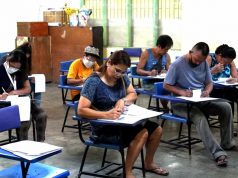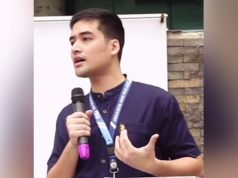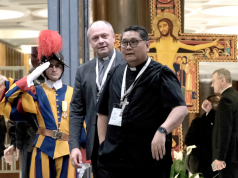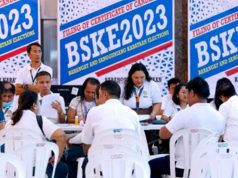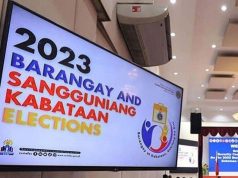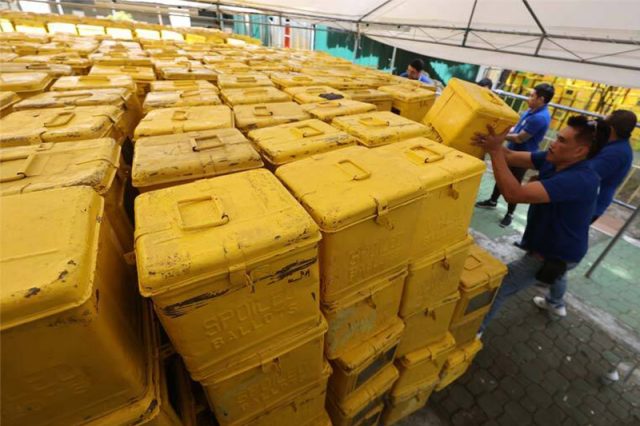
Some Filipinos debated between tossing coins and drawing lots as the correct way to resolve ties between candidates in the local elections.
This came after candidates of the Barangay and Sangguniang Kabataan Elections (BSKE), which concluded on Monday, received an equal number of votes from their communities.
On October 31, ABS-CBN News reported that a toss coin broke the tie of votes between Sangguniang Kabataan (SK) candidates Kristille Mae Endaya and Ivan James Centeñales in a barangay in Koronadal City in South Cotabato.
Endaya and Centeñales received 272 votes each after the canvassing of votes.
In the video, both of them held hands while an electoral officer did the toss coin to decide their fate. Centeñales won the local polls.
“Sobra pa sa MISS UNIVERSE”
A thrilling toss coin breaks the tie of two candidates for Sangguniang Kabataan kagawad in Brgy. Caloocan, Koronadal City, South Cotabato early Tuesday morning. | via @HernelTocmo
📹 Jeanie Roe Alfonga pic.twitter.com/UtA9BKXcst
— ABS-CBN News (@ABSCBNNews) October 31, 2023
Some Filipinos were amused by Endaya and Centeñales, saying they resembled the iconic Miss Universe crowning moment wherein two candidates held hands while facing each other.
“Look at their hands, very Miss Universe,” an X user said.
“Pati yung myth na nakapatong na kamay ng eventual winner very Miss Universe haha!” another X user said.
“Mananalo talaga kapag nasa taas yung kamay,” a pageant fan on X also commented.
Other X users pitched in jest that they should have lip-synced instead, citing the popular challenge in “RuPaul’s Drag Race” franchises.
“Dapat nag lip-sync for your life na lang sila,” an X user suggested.
Some Filipinos, however, raised their eyebrows at this.
Election lawyer Emil Marañon III pointed out that the coin toss method is not supported by the Omnibus Election Code (OEC).
“Very interesting that while the law mandates that it should be decided by luck, the required manner both under the Omnibus Election Code and the Comelec rules is by ‘drawing of lots’. I wonder where the tossing of the coin comes from,” Marañon said.
What the Election Code says
Resolving ties among political bets receiving the same number of votes, however, was not as easy as tossing coins under Section 240 of the OEC.
Here, political aspirants are considered a tie when “it shall appear from the canvass that two or more candidates have received an equal and highest number of votes, or in cases where two or more candidates are to be elected for the same position and two or more candidates received the same number of votes for the last place in the number to be elected.”
The Board of Canvassers (BOC) also has to hold a “special public meeting” first with all the tied candidates “upon five days’ notice.”
The OEC only mandates “the drawing of lots of the candidates who have tied” to settle these election ties.
The newly minted government officials will then be proclaimed “as elected the candidates who may be favored by luck, and the candidates so proclaimed shall have the right to assume office in the same manner as if he had been elected by a plurality of vote.”
Despite this provision in place, the flipping of a coin to decide winners has been done in past elections.
In 2019, Sue Cudilla became the mayor of a town in Palawan after winning the best-of-three in a coin toss.
The same method was also used to resolve the tie between two mayoral aspirants in Mindoro Oriental in 2013.
In the last BSKE 2023, winners in some localities in the City of Manila and in the provinces of Aurora and Zambales were also declared through a coin flip.




